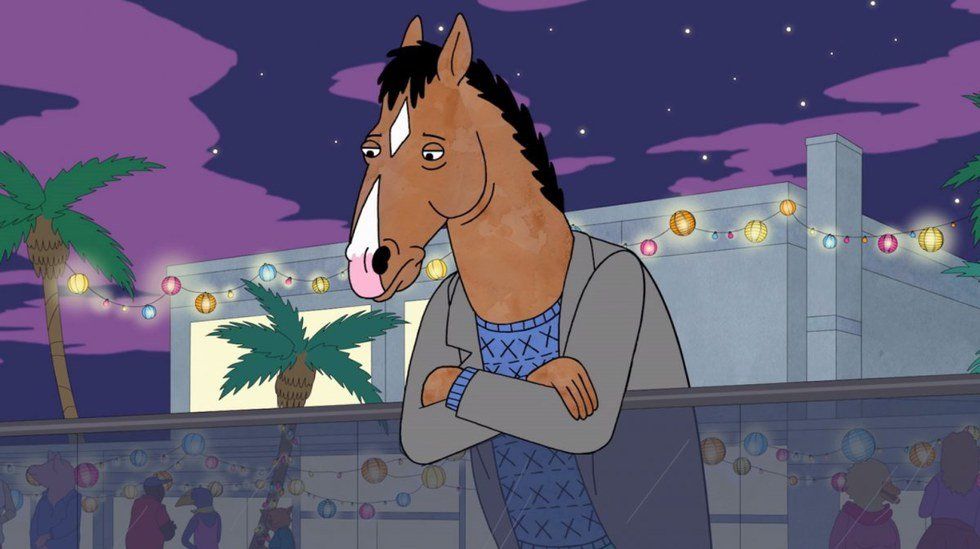After watching the first season, I was unsure whether "Bojack Horseman" had lived up to the now sterling reputation of Netflix originals. My interest was piqued by the kickass intro, its ability to retain the kind of conscience and bite that most goofy animated shows lack, but it took until the second season for all of that to really congeal into a great show. While the first season is definitely worth a watch, the second season recently became available on Netflix and I couldn't recommend anything more for fans of the deeply sardonic and ridiculous.
It begins with Bojack preparing for and beginning his dream role as Secretariat (the dream role for any anthropomorphized horse that grew up in that era). In typical Los Angeles fashion, the first episode sees Bojack smile toothily through his explanations of a new positive outlook as he quotes self-help podcasts and picks up jogging. However, as we should have expected from Season 1, Bojack's inability to secure lasting happiness begins to creep in as he tries to stave off feelings that the movie, his relationships, and his career as a whole are not what he'd imagined them to be. And that his inability to live up to the expectations of a narcissistic mother have left him too broken to ever relate to others and truly be happy.
But this dark side is nothing new to the show and, if anything, is slightly tempered from that of Season 1. What makes this season emerge so brilliantly, though, are the clever and compelling side plots from characters like Todd, Princess Caroline, Diane, and Mr. Peanutbutter. (I know, to non-viewers these names sound ridiculous but bear with me.) While on the outset over-the-top and absurd, side stories like that of the chicken farm run by chickens allow the plot to temporarily stray from Bojack while still maintaining the kind of cynical wit that makes his character so captivating.
At the core of what makes this show so good is its determination to eschew the classic sitcom style of neatly wrapping up each of the issues at the end of the 30-minute episode. And they manage to do so masterfully through constant juxtaposition of the '90s sitcom that made Bojack famous (and is the source of so many of his emotional problems). Moreover, by being able to deal with pertinent media topics like sexual harassment, immigration, the humane treatment of animals, and even cults, this second season of Bojack Horseman shows that there is room for regret and compunction in an animated genre full of one-sided laughs.
Certified fresh!




















